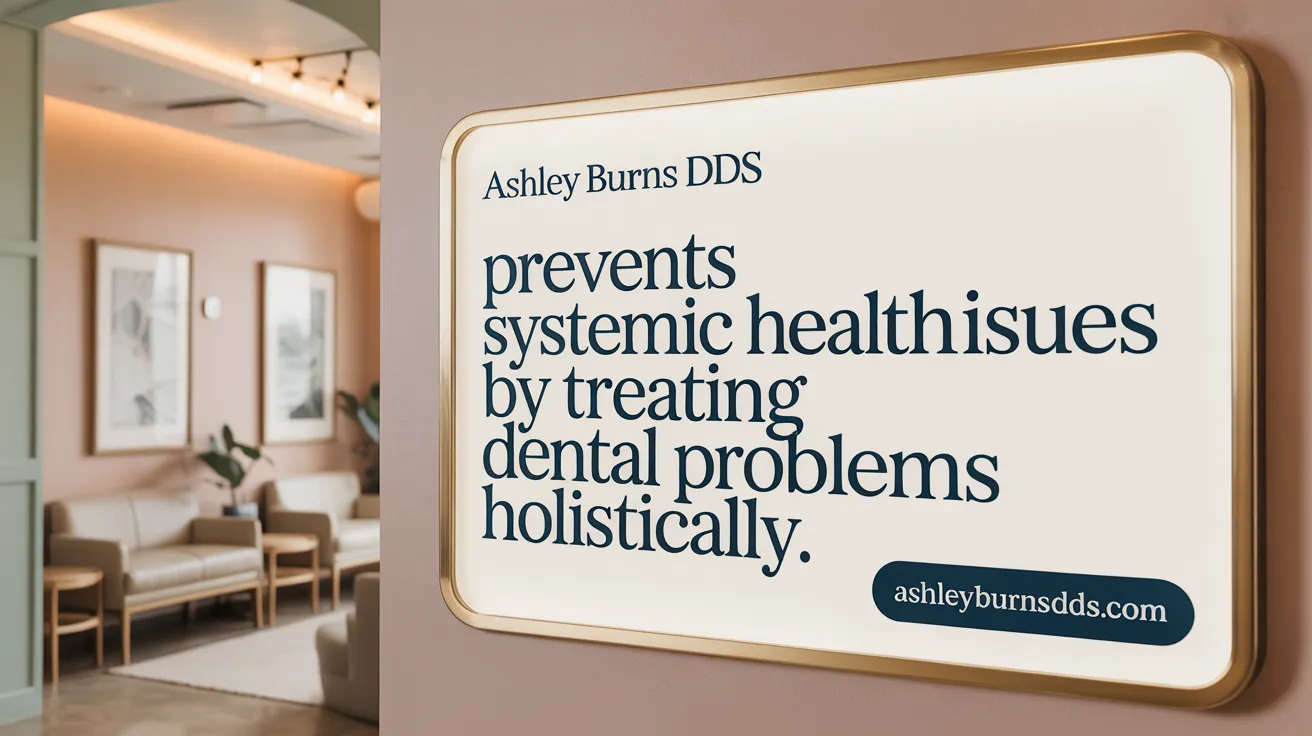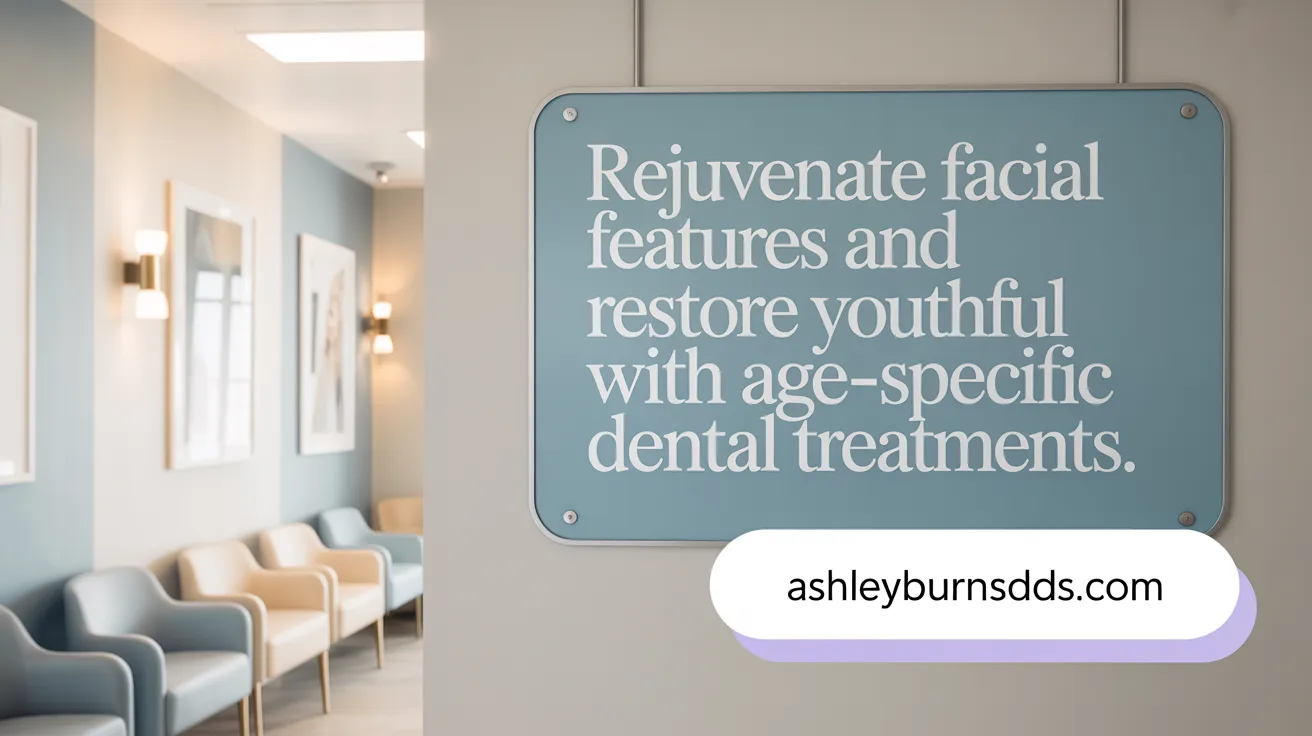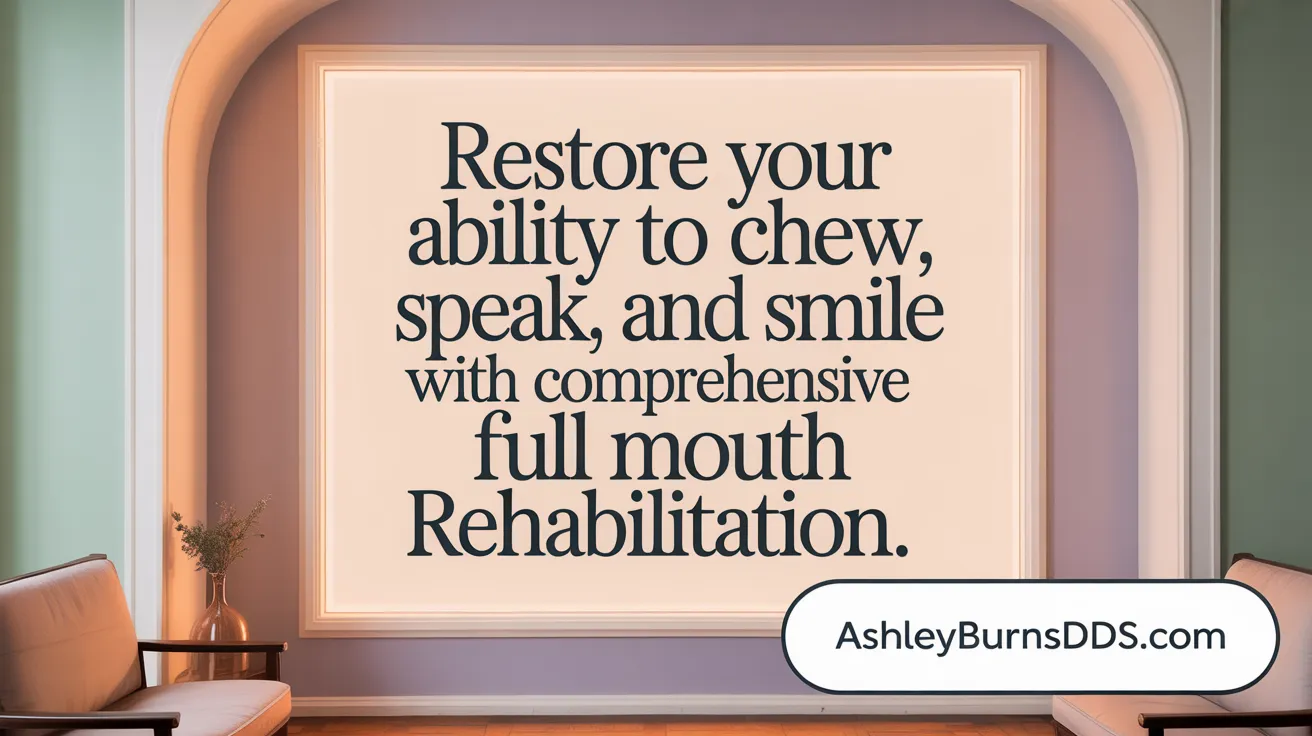Understanding Full Mouth Rehabilitation: A Path to Enhanced Well-being
What is Full Mouth Rehabilitation?
Full mouth rehabilitation is a comprehensive dental treatment plan designed to restore and enhance the health, function, and appearance of the entire mouth. It combines multiple procedures to address complex dental issues that affect teeth, gums, bite, and jaw joints simultaneously.
Common Dental Issues Addressed
This treatment is ideal for patients experiencing a range of problems, including extensive tooth decay, gum disease, missing or damaged teeth, bite misalignment, worn or cracked teeth, and prior dental work requiring replacement. It also helps those with difficulties chewing, speaking, or chronic oral discomfort.
Personalized Treatment Planning
Each patient undergoes a thorough evaluation involving digital imaging, bite analysis, and health history review. Based on these findings, dentists create a customized plan tailored to the individual's unique needs, goals, and budget. Treatments may include crowns, bridges, dental implants, veneers, orthodontics, and periodontal therapy.
Goals of Full Mouth Rehabilitation
The primary goals are to restore oral function—improving chewing and speech—while enhancing aesthetic appeal for a natural, confident smile. Additionally, it aims to improve overall oral health, prevent further damage, and elevate the patient’s quality of life by reducing pain and boosting self-confidence.
Transforming Oral Function and Health Through Comprehensive Care

How Does Full Mouth Rehabilitation Restore Chewing, Speaking, and Bite Function?
Full mouth rehabilitation significantly enhances oral function by addressing multiple dental issues simultaneously. Procedures such as dental implants, crowns, bridges, and orthodontic treatment work together to restore the ability to chew efficiently, speak clearly, and correct bite misalignments. This coordinated treatment helps patients regain comfortable and natural oral function, improving everyday activities like eating and communication. Learn more about Full-mouth rehabilitation benefits.
How Does This Treatment Prevent Further Dental and Systemic Health Issues?
By comprehensively treating problems like tooth decay, gum disease, and bite irregularities, full mouth rehabilitation prevents the progression of oral diseases that could lead to tooth loss or jaw disorders. Moreover, controlling oral infections reduces systemic risks linked with poor dental health, including cardiovascular disease, diabetes complications, and respiratory infections. Establishing a healthy oral environment supports overall well-being and reduces future health complications. See insights on Understanding the impact of full-mouth reconstruction on your health.
What Procedures Are Commonly Included in Full Mouth Rehabilitation?
Full mouth care combines restorative and periodontal therapies including:
- Dental Implants: Replace missing teeth and provide stable function.
- Crowns and Bridges: Restore damaged or missing teeth, strengthen dental structure.
- Periodontal Therapy: Treat gum disease to support tooth stability and oral health.
- Orthodontics: Correct bite alignment and improve jaw function.
- Veneers and Cosmetic Procedures: Enhance aesthetics aside from function.
- Gum contouring: Refine the gum line to create a balanced, healthy-looking smile.
Why Is Holistic Treatment Important for Complex Dental Problems?
Complex dental issues often involve multiple challenges such as decay, missing teeth, gum disease, and malocclusion that cannot be adequately resolved by addressing individual problems in isolation. A holistic approach ensures all contributing factors are treated at once, leading to balanced oral structures, improved function, and an aesthetically harmonious smile. This comprehensive care fosters long-term oral health and patient satisfaction. Discover how a comprehensive dental treatment plan supports complex dental problems.
Aesthetic Enhancements and Psychological Benefits

How Does Full Mouth Rehabilitation Improve Smile Appearance?
Full mouth rehabilitation offers notable improvements in the appearance of your smile. It addresses stained, discolored, chipped, or worn teeth by incorporating aesthetic treatments such as porcelain veneers, professional teeth whitening, and gum contouring. These cosmetic procedures harmonize with restorative work like crowns and bridges to create a more natural, balanced, and attractive smile.
What Cosmetic Treatments Are Commonly Used?
Common cosmetic enhancements in full mouth rehabilitation include:
- Porcelain Veneers: Cover cracks, chips, gaps, and discoloration for a flawless look.
- Teeth Whitening: Removes stains to brighten teeth several shades.
- Gum Contouring: Reshapes gum lines to correct excessive gum tissue and improve smile symmetry.
These treatments complement functional restorations, ensuring that improved oral health coincides with enhanced aesthetics.
How Does a Restored Smile Affect Confidence and Social Interactions?
Patients undergoing full mouth rehabilitation often experience a significant boost in self-confidence. The improvement in smile aesthetics encourages more frequent smiling, which positively influences social interactions and professional relationships. A renewed smile can reduce dental anxiety and foster openness, making patients feel more comfortable engaging with others. These psychological and social benefits are well-documented in comprehensive guides on full-mouth restoration.
What Is the Psychological Impact of Achieving a Natural-Looking Smile?
Restoring a natural-looking smile through comprehensive dental care can profoundly impact psychological well-being. Patients report enhanced self-esteem and an overall improved quality of life. The ability to smile confidently without embarrassment promotes emotional health and reduces feelings of self-consciousness linked to poor dental appearance.
Together, these aesthetic and psychological benefits highlight the transformative power of full mouth rehabilitation in enhancing both oral health and personal confidence.
Addressing Age-Related Dental Changes for Renewed Facial Support

Common Signs of Dental Aging Such as Worn, Discolored Teeth
As we age, our teeth often show signs of wear like yellow stains, discoloration, cracks, chips, and shortening due to long-term use. These changes not only affect the smile's appearance but also contribute to bite irregularities and reduced dental function, which can influence facial structure. Learn more about Addressing aging signs in teeth.
Procedures to Restore Facial Aesthetics and Jawline
Full mouth rehabilitation for age-related dental issues typically includes porcelain veneers and crowns to restore tooth length and color, gum contouring to refine the gum line, and professional teeth whitening. Orthodontic options like Six Month Smiles help correct bite alignment. These procedures improve facial support, resulting in a stronger jawline and more youthful facial contours. See detailed information on porcelain veneers and crowns and gum contouring treatments.
Impact on Speech, Bite Coordination, and Comfort
Restoring worn and misaligned teeth improves speech clarity and bite coordination. Enhanced bite function reduces discomfort associated with misalignment or uneven wear. Patients often enjoy increased comfort and ease in daily activities like chewing and speaking. Explore how improving bite alignment and enhancing speech and bite comfort contribute to this improvement.
Longevity and Maintenance of Restorations
High-quality restorations from full mouth rehabilitation can last 10 to 15 years or longer with proper care, including regular dental visits and good oral hygiene. Timely maintenance helps preserve both function and aesthetics over many years, supporting a healthy, confident smile well into later life. For more on long-lasting dental restorations and preventing further dental damage, see these resources.
Personalized Treatment Planning and Advanced Technology

How Are Comprehensive Evaluations Conducted?
Full-mouth rehabilitation begins with a thorough and comprehensive dental evaluation process. This includes digital imaging techniques such as 3D scans, digital X-rays, and bite analysis to gain an accurate understanding of the patient's oral health status. These advanced diagnostic tools provide detailed views of teeth, gums, bone structures, and jaw alignment.
How Are Treatment Plans Customized?
Based on the examination findings and patient goals, dentists develop a personalized treatment plan. This plan considers the patient’s specific dental issues, overall health, lifestyle, and budget. It outlines tailored oral health goals, combining restorative and cosmetic dental procedures to address multiple concerns efficiently.
What Advanced Technologies Are Utilized?
Modern full-mouth rehabilitation integrates cutting-edge dental technologies to achieve precision and enhance results. Technologies like computer-guided implant placement enable more accurate and minimally invasive surgeries. Digital impressions replace traditional molds for better comfort and accuracy. Laser dentistry, sedation techniques, and 3D treatment simulations](https://www.midlandsmile.com/restorative-dentistry) improve patient experience and treatment outcomes.
Why Are Experienced Dental Professionals Essential?
Successful full-mouth rehabilitation requires skilled dental professionals trained in both restorative and cosmetic dentistry. Experts coordinate complex treatment stages, adapt plans to patient progress, and ensure aesthetic and functional harmony. Their experience is crucial for delivering durable, natural-looking results and maintaining oral health long term.
Together, comprehensive evaluation, personalized planning, sophisticated technology, and expert care create a seamless full-mouth restoration experience that enhances both oral function and aesthetics.
Enhancing Overall Quality of Life Beyond Dentistry

How Does Full Mouth Rehabilitation Improve Nutrition?
One major benefit of full-mouth rehabilitation is the restoration of chewing ability. Patients who suffer from damaged, missing, or decayed teeth often struggle to eat a wide variety of foods, limiting their nutrition. By rebuilding and replacing teeth with dental implants and crowns included, bridges, or dentures, patients regain the ability to chew comfortably and efficiently. This improvement not only makes eating more enjoyable but also supports better digestion and overall health by allowing patients to maintain a balanced and nutritious diet.
What Relief Does Full Mouth Rehabilitation Provide From Pain and TMJ Symptoms?
Many individuals experience chronic jaw pain, headaches, or discomfort caused by bite misalignment or temporomandibular joint (TMJ) disorders. Full mouth rehabilitation addresses these issues through bite correction, neuromuscular dentistry, and the restoration of dental structures. As a result, patients often report significant relief from pain and tension headaches, improved jaw function, and a noticeable reduction in discomfort associated with teeth grinding or clenching.
How Does Full Mouth Rehabilitation Enhance Speech and Communication?
Restoring oral function directly benefits speech clarity and pronunciation. Missing or damaged teeth can affect the ability to form sounds properly, leading to embarrassment or communication difficulties. After rehabilitation treatments, patients frequently notice improved speech and greater ease in social or professional environments, which contributes to increased confidence. This is a key aspect of the full mouth restoration benefits that improve quality of life.
What Is the Link Between Oral Health Restoration and Systemic Health Benefits?
Poor oral health is closely linked to systemic conditions such as cardiovascular disease, diabetes, and respiratory illnesses. Full mouth rehabilitation aims to eliminate infections, treat gum disease, and stabilize the oral environment, thereby reducing harmful bacteria that can enter the bloodstream. This comprehensive dental treatment plan not only improves mouth health but also helps lower inflammation and risks associated with chronic diseases, enhancing overall well-being.
What Do Patients Say About Confidence Gains After Rehabilitation?
Patient testimonials consistently highlight dramatic increases in confidence following full mouth rehabilitation. Many express feeling renewed self-esteem when eating, smiling, speaking, and interacting socially. A documented improvement of up to 85% in confidence levels has been observed, underlining the powerful impact of comprehensive dental restoration on emotional and social quality of life.
Full Mouth Rehabilitation: Creating Healthier Smiles and Happier Lives
Comprehensive Benefits of Full Mouth Rehabilitation
Full mouth rehabilitation offers a transformative approach by addressing functional, aesthetic, and health concerns simultaneously. Patients benefit from restored chewing and speaking abilities, enhanced smile appearance through cosmetic procedures like veneers and whitening, and improved oral health that prevents further dental complications.
Personalized Treatment for Your Needs
Every patient's journey is unique; a thorough evaluation with advanced imaging and bite analysis ensures that treatment plans are carefully tailored to individual dental health, goals, and budgets. This personalized care optimizes both long-term outcomes and patient satisfaction.
Elevating Quality of Life
Beyond physical restoration, full mouth rehabilitation profoundly impacts overall well-being. By relieving pain, correcting bite misalignments, and boosting confidence, patients experience greater comfort, improved nutrition, and enhanced social interactions that contribute to happier lives.
